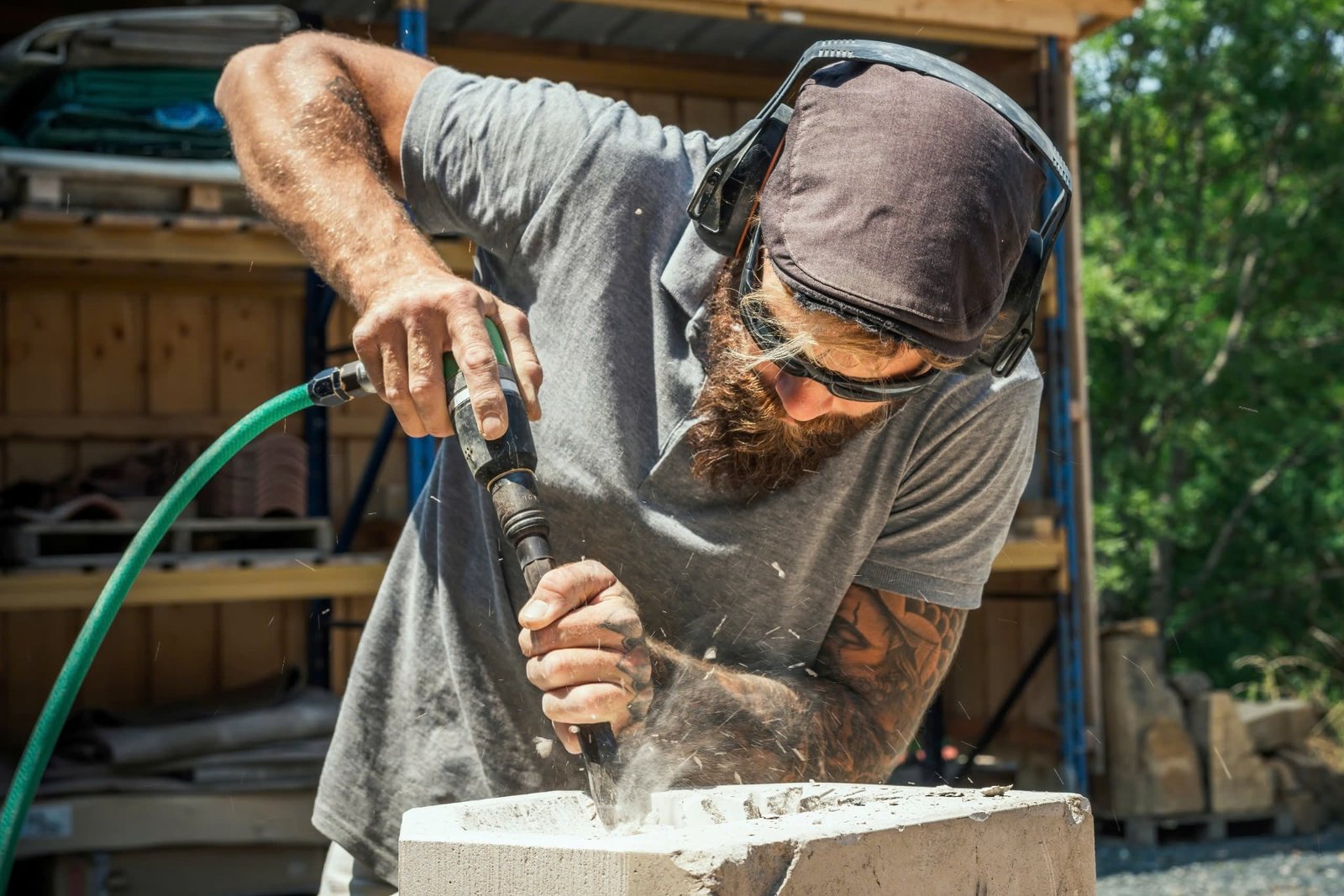
beautiful kitchen is often defined by its surfaces, and a professional countertop installation can completely transform your space.
A beautiful kitchen is often defined by its surfaces, and a professional countertop installation can completely transform your space. Whether you’re planning a sleek quartz countertop installation, a classic granite countertop installation, or considering a complete kitchen countertop installation, success hinges on both preparation and execution.
In this guide, we’ll cover everything you need to know to achieve flawless results, from selecting the right materials to understanding potential pitfalls, and ensuring your investment remains stunning for years to come.

Why Countertop Installation Is Crucial in Kitchen Upgrades
Your countertops aren’t just work surfaces—they’re style statements, functional hubs, and major contributors to your home’s value. A high-quality countertop installation can:
- Enhance kitchen aesthetics
- Improve everyday functionality
- Increase your property’s market appeal
- Extend the lifespan of your materials
However, poor installation can lead to uneven surfaces, cracks, and costly countertop repair or even premature countertop replacement. That’s why getting it right from the start is essential.
For common pitfalls to avoid, explore What Are Common Problems in Countertop Installation?.
How to Prepare for a Countertop Installation
1. Select the Right Material
Choosing a countertop material suited to your lifestyle and design preferences sets the foundation for a successful project.
- Granite countertops installed offer natural beauty and durability.
- Quartz countertop installation provides a non-porous, low-maintenance option.
- Solid surface materials are versatile and cost-effective.
- Laminate remains a budget-friendly alternative, although it lacks the durability of stone.
2. Budget for the Full Countertop Installation Cost
When budgeting, remember to factor in:
| Expense | Estimated Range |
|---|---|
| Material cost | $50 – $200 per sq. ft. |
| Labor | $30 – $90 per hour |
| Old countertop removal | $100 – $500 |
| Custom edges and cutouts | Additional costs apply |
| Sealing (natural stone) | $100 – $300 |
Request detailed quotes from contractors to avoid hidden fees, and always search countertop installation near me to find reputable local providers.
Installation Day: What to Expect
Professional kitchen countertop fitting involves several key steps:
- Templating: Digital or physical templates are made to ensure precision.
- Fabrication: Your selected slab is cut, polished, and customized.
- Delivery and Preparation: Cabinets are leveled and prepped.
- Placement and Seaming: Countertops are positioned, and seams are joined invisibly.
- Sealing: If using porous materials like granite, a sealant is applied.
- Final Inspection: Edges, seams, and support structures are checked for integrity.
Tips to Ensure a Flawless Countertop Installation
1. Work with Experienced Installers
Choose a certified and experienced contractor who specializes in granite countertop installation, quartz countertop installation, or your chosen material.
How to vet an installer:
- Ask for portfolio examples.
- Check references and online reviews.
- Confirm warranty details.
2. Inspect the Slab Before Fabrication
Especially for granite countertop installation, inspect slabs in person to ensure color consistency and vein patterns match your design goals.
3. Reinforce Cabinets and Supports
Ensure base cabinets are:
- Properly anchored
- Completely level
- Capable of supporting the weight of the slab (especially important for heavy stone materials)
4. Plan for Sink and Cooktop Cutouts
All plumbing, faucets, and appliances should be considered early in the templating phase to avoid last-minute adjustments and added costs.
5. Communicate Seam Preferences
If seams are unavoidable, discuss their placement and blending with your fabricator to maintain aesthetic appeal.
Aftercare: How to Protect Your Investment
Your countertop’s long-term performance depends largely on how you care for it after installation.
Daily maintenance:
- Wipe down surfaces with a soft cloth and mild soap.
- Avoid acidic or abrasive cleaners.
Annual maintenance:
- Reseal natural stones like granite and marble to prevent staining.
General care tips:
- Use cutting boards to prevent scratches.
- Use trivets or heat pads under hot pots and pans.
- Clean spills immediately to avoid stains.
For a complete maintenance guide, refer to How to Maintain Your Countertop Installation.
Common Post-Installation Issues to Watch For
Even a well-executed countertop installation can encounter challenges over time. Keep an eye out for:
- Hairline cracks near sink cutouts
- Small chips on edges or corners
- Seam separation or lifting
- Water infiltration near unsealed areas
Promptly addressing these issues can often prevent larger countertop repair costs down the road.
When to Consider Countertop Resurfacing or Replacement
Sometimes, maintenance and repairs aren’t enough. Here’s when to think about a bigger upgrade:
- Extensive cracking or structural issues
- Outdated designs that no longer fit your style
- Major discoloration or surface damage
Depending on the situation, countertop resurfacing may offer a temporary facelift, but full countertop replacement often yields better long-term results.
Conclusion
A successful countertop installation requires careful planning, skilled workmanship, and proper aftercare. By choosing the right materials, working with experienced professionals, and following best maintenance practices, you’ll ensure your kitchen remains stunning and functional for decades to come.
Whether you’re installing granite countertops, updating to modern quartz surfaces, or planning a complete kitchen countertop installation, staying informed is the key to achieving results you’ll love.

